This is your go-to guide for everything about composting in your backyard. I’ll show you how to enrich your garden’s soil and give your plants a boost with homemade compost.
From choosing the right balance of materials to finding the perfect spot for your compost pile and dealing with common hiccups along the way, I’ve got you covered. Beginner or not, grab your gardening gloves because we’re about to get down and dirty with composting!
What Is Compost?
Compost is a nutrient-rich material made from decomposed organic materials. Think of it as a natural fertilizer that comes from recycling your kitchen scraps and yard waste into something incredibly useful for your plants.
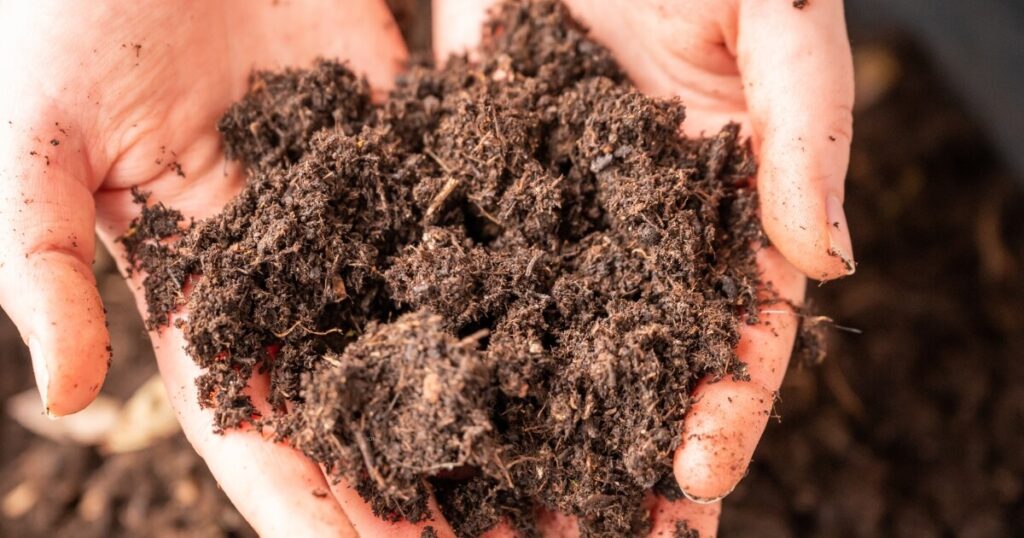
Why Compost in Your Garden? From my experience, compost is an essential part of gardening. It’s like a natural multivitamin for your soil that boosts soil fertility, helping your plants grow stronger and healthier.
It also improves soil structure, which means better water retention for those dry days and easier soil workability for planting. But it’s not just about feeding your plants. It’s about creating an ideal environment for them to thrive.
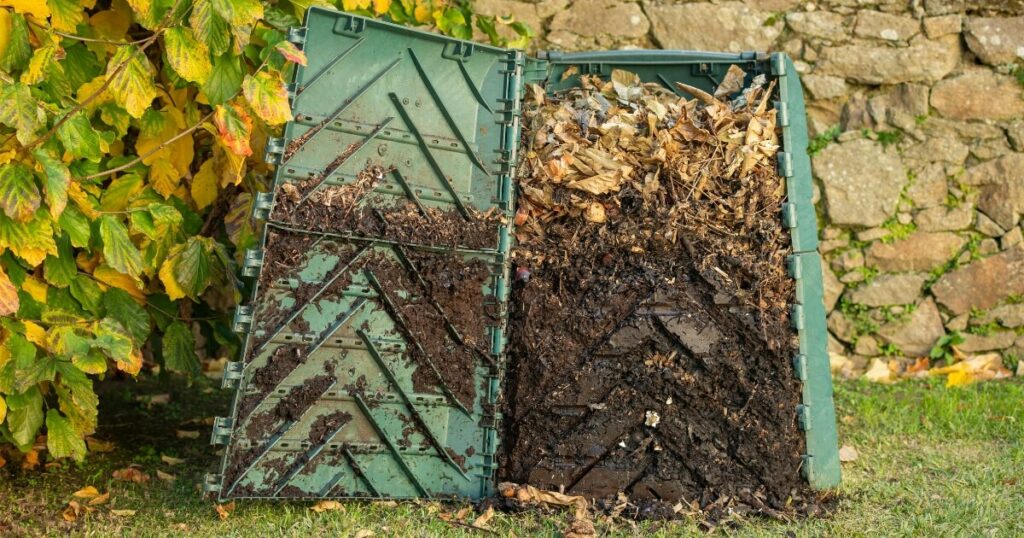
Making Your Own Compost: Creating compost isn’t as tough as it sounds. With a little bit of patience and some basic know-how, you can transform everyday waste into a nutrient-rich supplement for your garden.
No matter the size of your outdoor space, there’s a composting method that’ll work for you. I’ve found it to be a rewarding part of gardening, watching waste turn into something that helps my plants grow.
Composting Basics
While composting is pretty straightforward, getting the basics down can speed things up and help prevent problems.
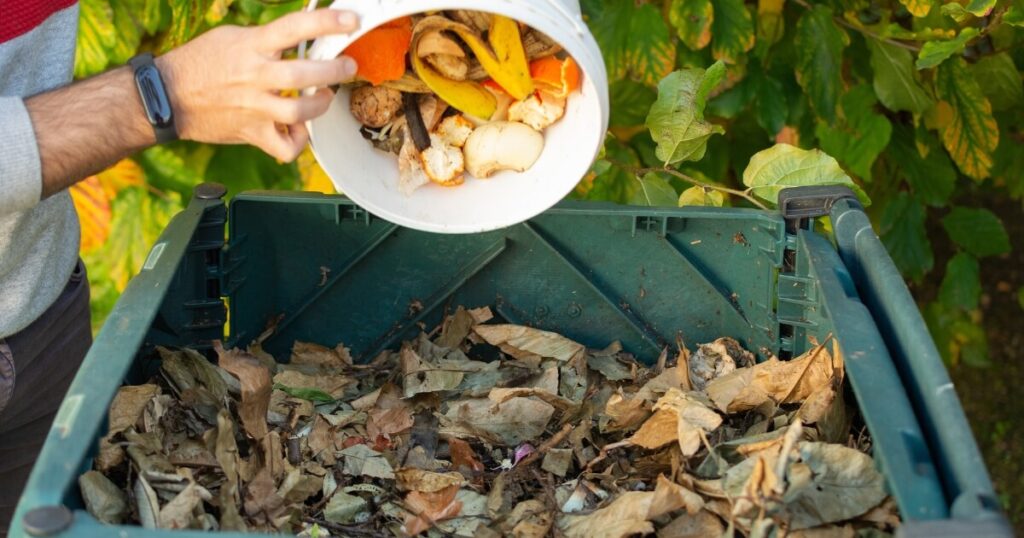
Here are some basics to focus on:
- What Can Be Composted: What you throw in your compost matters. It’s all about balancing ‘greens’ (like your kitchen scraps and lawn clippings) with ‘browns’ (like dead leaves and cardboard). This balance is important to keep your compost pile cooking just right.
- Where To Compost: Figuring out the best spot for your compost pile or bin can make a big difference. Whether you’re working with a big backyard or just a little patio space, I’ve got some pointers to help you find the perfect spot that keeps things tidy.
- Taking Care of Your Compost: A little love goes a long way in composting. Regularly turning your pile and checking the moisture and temperature of your compost can help speed up the process and ensure you get great compost.
Tools & Equipment
I’ve found that having the right equipment can make composting a breeze. Here’s a rundown of some handy composting tools:
- Compost Bins: These are the traditional choice for composting at home. Ideal for gardens with some space, they can handle a good volume of scraps and yard waste. They keep your composting efforts neat and discourage pests.
- Kitchen Composters: When done right, a kitchen composter is handy to collect your scraps without any mess or smell before you take them out to your main compost pile.
- Compost Tumblers: A fantastic option for quick and easy composting. These are great for smaller spaces and reduce the effort of turning compost. Tumblers provide faster decomposition by improving aeration.
- Worm Composters: Perfect for indoor composting or small outdoor areas. These use worms to efficiently break down kitchen scraps into high-quality compost, making them a practical choice for urban gardeners.
- Compost Aerators and Turners: These tools are real arm-savers. They help you mix and aerate your compost pile without the backbreaking work of turning it with a shovel.
- Compost Starters and Accelerants: Sometimes compost piles need a little help to get going. Accelerants can speed up the composting process, especially if you’re just getting started or dealing with a sluggish pile.
Methods & Types
Composting isn’t one-size-fits-all. Whether you have a tiny balcony or a big backyard, there’s a composting method that can work for you. Let’s take a look at some popular methods:
- Traditional Composting: This is the classic backyard compost pile. It’s all about layering greens and browns and letting nature do its thing. It’s perfect if you have the outdoor space and enjoy a bit of yard work.
- Vermicomposting: This method breaks down kitchen scraps with the help of composting worms. It’s amazing for small spaces and produces rich compost. If you’re up for a slightly different kind of pet, this can be fun and rewarding!
- Bokashi Composting: Bokashi is a speedy method that ferments your kitchen waste. It’s super for people who want to compost meat and dairy, which you shouldn’t usually put in traditional compost piles.
- Compost Tea: This liquid gold is made by steeping finished compost in water. It’s a nutrient-rich solution that your plants will love. Great for giving your plants a quick boost!
- Mushroom Compost: This unique composting method uses the leftover material from mushroom farming. Just a heads-up, it’s high in nutrients, so a little goes a long way.
How-To Guides
These practical how-tos cover everything from starting your compost pile to using your finished compost in your garden.
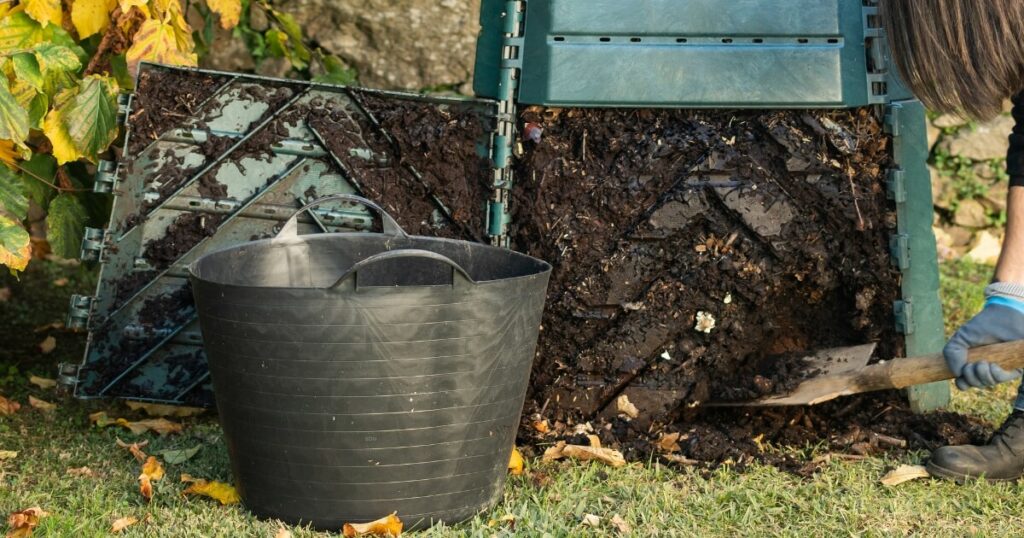
Starting Your Compost Pile: We’ll go through the basics of setting up your first compost pile. It’s easier than you think!
Maintaining Your Compost: I’ll share some tips on keeping your compost healthy and active. Regular maintenance is key to getting great compost and how long it will last.
Harvesting Your Compost: When is your compost ready, and what do you do with it? I’ll show you how to know when it’s time to harvest and how to use your compost effectively.
Using Compost in Your Garden: There’s more to it than just spreading it around. I’ll guide you on how to best use your compost to enrich your garden’s soil.
Managing Pests
Pests can be a challenge in composting, but you can keep them at bay with the right strategies. I’ve dealt with my fair share of compost critters and gathered some effective ways to manage them.
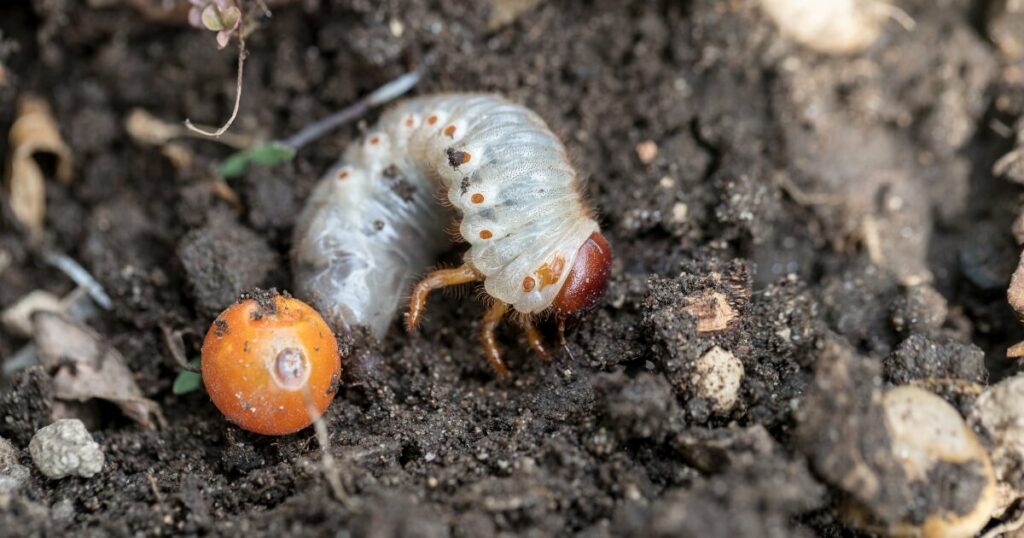
With the tips in these guides, you’ll be able to keep your compost healthy and productive.
Identifying Common Compost Pests: The first step is to understand what’s visiting your compost pile. We’ll look at how to identify common pests such as maggots, fruit flies, and other pests.
Preventative Measures: Here are some tips on how to set up and maintain your compost to prevent pests from becoming interested in the first place.
Safe Pest Control: If pests do show up, there are safe and effective ways to deal with them. It’s important that you use safe methods, especially when using your finished compost for fruit or vegetable gardening. Here, you’ll find how to manage pests without harming your compost or the environment.
Troubleshooting Common Composting Problems
Even the best of us run into a few issues with our compost piles. But most of these problems have simple solutions. Here are a few problems you might encounter:
- Compost Pile Not Heating Up: If your pile isn’t getting warm, it might need more ‘greens’ or a good turning. We’ll look into how to get that balance right.
- Bad Odors from Compost: A stinky pile usually means something’s off. It could be too wet, too compacted, or you might have added something you shouldn’t have. Got mold in your compost? I’ll show you how to fix it.
- Pests in your Compost: From fruit flies to larger critters, unwanted visitors can be a nuisance. Let’s talk about keeping your compost pile pest-free in a safe and simple way.
- Compost Too Wet or Dry: Moisture levels are really important in composting. We’ll go over how to maintain the perfect moisture balance for a thriving compost pile.
Composting Definitions
- Compost: At its core, compost is decomposed organic material. It’s made from kitchen scraps, yard waste, and other biodegradable materials. When these materials break down, they become a nutrient-rich, soil-like substance that’s great for gardening.
- Composting: This is the process of facilitating the breakdown of organic materials into compost. It’s an eco-friendly way to recycle kitchen and garden waste, turning it into something valuable for your garden.
- Green Materials: In composting, ‘greens’ are nitrogen-rich materials such as vegetable scraps, corn husks, egg shells, coffee grounds, and grass clippings. They help to speed up the composting process.
- Brown Materials: ‘Browns’ are carbon-rich materials such as leaves, straw, cardboard, shredded paper and paper towels. They balance the nitrogen in greens and add structure to your compost pile.
- Aeration: This refers to the process of introducing air into your compost pile. Regularly turning your compost helps to aerate it, which is important for breaking down materials efficiently.